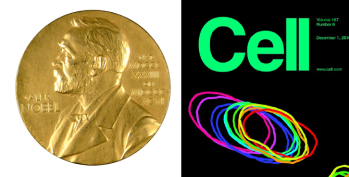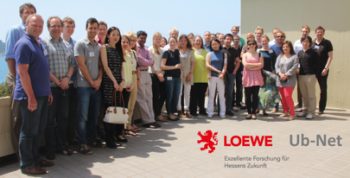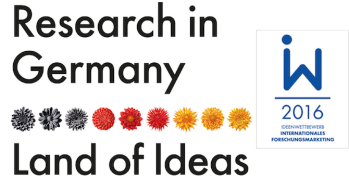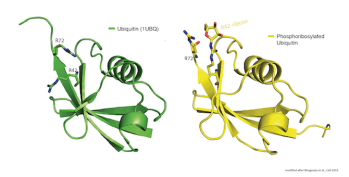News from the Institute

Recently, Dr. Heike Angerer, postdoc in the Structural Bioenergetics Group at IBC2, received a grant from the German Research Foundation (DFG), enabling her to study the importance of de novo synthesized long-chain fatty acid chains in mitochondria. Heike’s previous work showed that long acyl chains are required for the function of several mitochondrial enzymes, including the essential respiratory chain, sustaining cellular energy supply. In the next two years, Heike aims at understanding the impact of mitochondrial fatty acids on mitochondrial function, since malfunction in this pathway was linked to various human diseases.
... (read more)
This year’s Nobel Essay in Cell has been written by Ivan Dikic (IBC2) together with Sharon Tooze (Francis Crick Institute, London). Published on time for the Nobel Ceremony on 10th December, the article highlights milestones leading to the discovery of the molecular principles underlying autophagy by Yoshinori Ohsumi, who is this years’ winner of the Nobel Prize for Medicine or Physiology. Dikic and Tooze tell the story of a simple yet insightful yeast genetic screen that revealed what later was recognized to be one of the most powerful quality-control pathways in cells.
... (read more)
As the Hessian Ministry for Science and Arts (HMWK) announced today, the LOEWE program Ub-Net will be prolonged for another year. The initiative led by IBC2 Director Ivan Dikic receives 1,08 M € to continue deciphering the complexity of ubiquitin networks and analysing the underlying molecular mechanisms.
... (read more)
As the German Research Foundation (DFG) announced today, Goethe University (GU) is one of the winners of the 2016 Competition for International Research Marketing Ideas.
... (read more)
In the latest issue of Cell, a team around IBC2 director Ivan Dikic reveals molecular details of a novel ubiquitination mechanism that may affect numerous life processes.
Earlier this year, U.S. colleagues reported that Legionella enzyme SdeA is capable of catalysing ubiquitination single-handedly. Now, the Frankfurt scientists together with collaborators from the MPI for Biology of Ageing (Cologne) have elucidated the chemistry behind and discovered a hitherto unknown type of linkage between ubiquitin and target proteins.
... (read more)